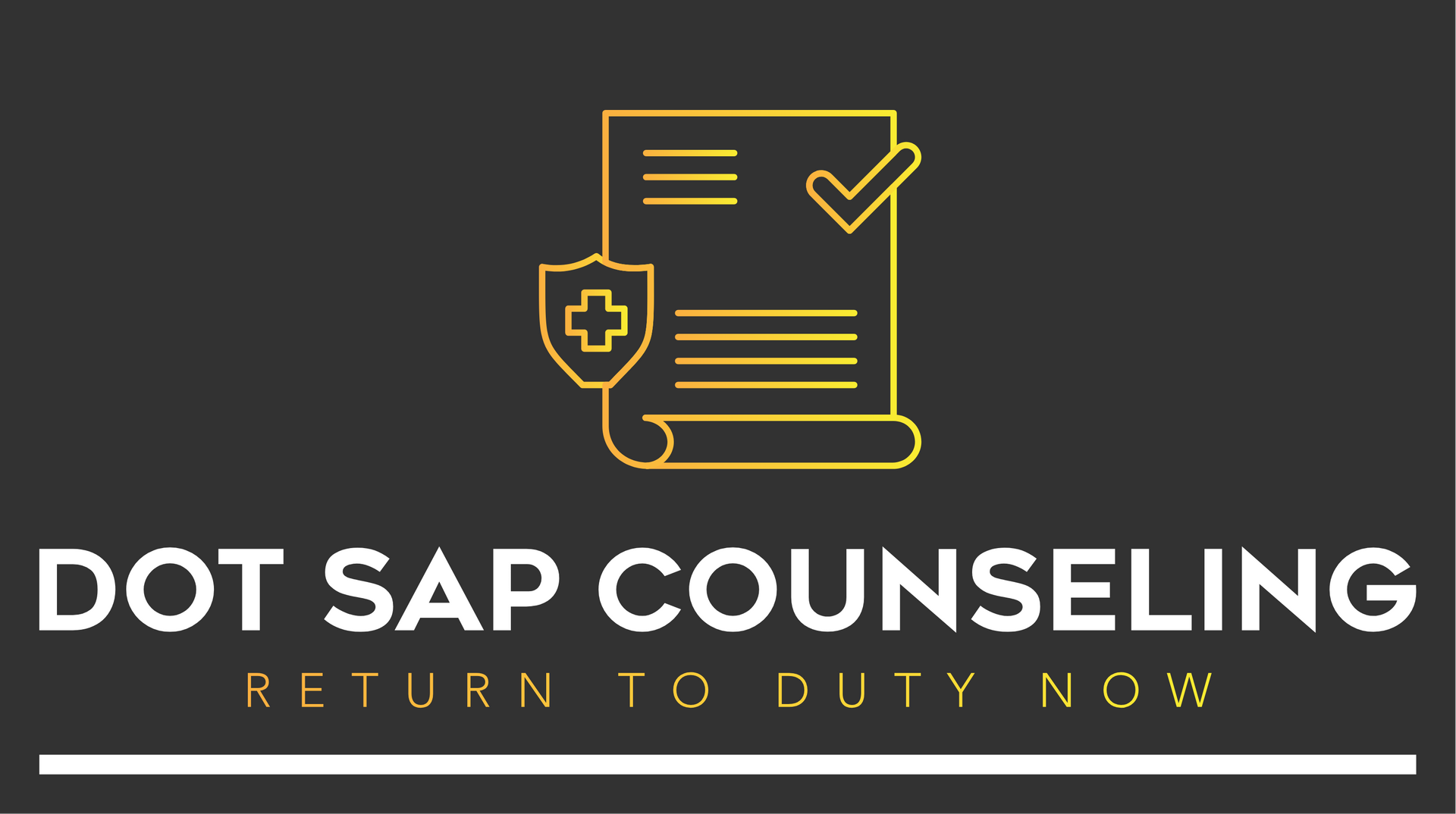The Role of Substance Abuse Evaluations in Driving Careers
In the world of driving careers, substance abuse evaluations play a crucial role in ensuring safety and compliance. These evaluations help identify individuals who may be at risk due to substance use, promoting a healthier work environment and reducing accidents on the road. This blog will explore the importance of these evaluations, the process involved, and their impact on driving careers.
Understanding Substance Abuse Evaluation
Substance abuse evaluation refers to a comprehensive assessment designed to determine whether an individual has a problem with drugs or alcohol. This process often involves interviews, questionnaires, and sometimes even biological testing. The aim is to gather a complete picture of a person’s substance use history and its impact on their life. Such evaluations are particularly important in driving careers, where safety is paramount.
Understanding the underlying issues associated with substance use can also facilitate early intervention. It’s not just about identifying problems; it’s about addressing them effectively. By having qualified professionals carry out evaluations, drivers can receive tailored recommendations for help, which may include counseling, treatment programs, or even time away from the job for rehabilitation.
In addition, these evaluations serve to educate individuals about the risks associated with substance misuse. Many drivers may be unaware of how their habits affect their driving abilities. This educational aspect can lead to a cultural shift within organizations, fostering a more health-conscious environment.
Why Substance Abuse Matters in Driving
Substance abuse has significant implications for safety on the roads. When drivers use drugs or alcohol, their judgment, memory, and reaction times can be severely impaired. This leads to a heightened risk of accidents, not only for the affected driver but also for other motorists and pedestrians. Statistics reveal that a considerable percentage of road accidents involve substance abuse, underscoring the need for stringent evaluations.
Moreover, driving under the influence of substances can have legal and financial repercussions for individuals. Fines, license suspensions, and even imprisonment are possible outcomes of substance-related offenses. This scenario shows how crucial it is for employers to be proactive in conducting evaluations and instilling a culture of safety.
Understanding why substance abuse matters extends beyond safety; it also encompasses overall workplace integrity and productivity. Drivers who are dealing with substance addiction may find it challenging to perform their duties effectively. This can lead to a decline in job performance, increased absenteeism, and ultimately, higher turnover rates.
The Evaluation Process Explained
The substance abuse evaluation process typically begins with an interview, where a trained evaluator asks questions about the individual's substance use history and any associated problems. This initial conversation is pivotal, as it helps to establish trust and rapport, which can impact the accuracy of the information shared. Accurate disclosures during this stage are crucial for effective assessments.
Next, standardized assessment tools are utilized. These may include psychological questionnaires designed to rate the severity of substance abuse. The results from these tools help pinpoint areas that require attention, whether it be counseling, further evaluation, or immediate intervention. Understanding the various components of these assessments can demystify the process for individuals undergoing evaluation.
Finally, the evaluation culminates in feedback and recommendations provided by the evaluator. This is where the individual gains insight into their situation and receives guidance tailored to their circumstances. This feedback loop is vital for long-term recovery and personal accountability, which encompasses more than just the evaluation itself.
Legal Regulations Surrounding Substance Abuse Evaluations
Legal regulations governing substance abuse evaluations are in place to ensure that both employees and employers are held to high standards of safety. In many jurisdictions, employers are required by law to conduct these evaluations, especially in industries that prioritize transportation safety. These legal frameworks lay the groundwork for clear guidelines on how evaluations must be carried out.
Failing to comply with legal requirements can lead to severe repercussions, including fines and a damaged reputation. Therefore, organizations must have robust systems in place to conduct evaluations thoroughly and consistently. Understanding these legal obligations can help employers protect themselves and their employees from potential liabilities.
Furthermore, the legal landscape continually evolves. New regulations are introduced to address emerging issues surrounding substance use. Staying updated on these changes is essential for employers to ensure compliance and maintain a safe work environment. Ongoing training and education for HR professionals and employees about legal regulations will cultivate a more informed workplace.
The Benefits of Regular Substance Abuse Evaluations for Employers
Regular substance abuse evaluations provide numerous benefits for employers. Firstly, they enhance workplace safety, minimizing the risk of accidents and ensuring that employees are fit for duty. This proactive approach to safety not only protects employees but also assists in safeguarding the company's assets and reputation.
Additionally, these evaluations can lead to cost savings in the long run. When employees receive timely assistance for substance-related issues, organizations can reduce the costs associated with accidents, litigation, and employee turnover. A healthy workforce is often more productive, creating a positive return on investment for employers engaged in regular evaluations.
Moreover, implementing a culture of accountability and support strengthens employee morale. When employees see that their employers care about their well-being, they are more likely to engage positively with their work and colleagues. This cultural shift not only fosters loyalty but also encourages open discussions about substance use, paving the way for earlier interventions.
Supporting Drivers Through the Evaluation Process
Supporting drivers during the substance abuse evaluation process is crucial for fostering an environment of trust and cooperation. Employers can play a proactive role by ensuring that drivers understand the purpose and benefits of these evaluations. Clear communication can demystify the process and reduce anxiety for employees facing evaluation.
Additionally, having trained professionals available to guide and support drivers through the process can significantly enhance their experience. These professionals can explain the steps involved, address any concerns, and offer reassurance along the way. Creating a supportive environment encourages honesty, leading to more accurate evaluations.
It's also essential for companies to have follow-up plans in place once evaluations are completed. Continuous support, whether that's through counseling resources or wellness programs, offers drivers the help they need to thrive in their careers. This holistic approach elevates the standard for workplace safety and well-being.
Moving Forward: Best Practices for Substance Abuse Evaluations
Moving forward, establishing best practices for substance abuse evaluations should be a priority for all organizations. First and foremost, companies should invest in training for evaluators to ensure they possess the knowledge and skills necessary to conduct thorough evaluations. This investment pays dividends in terms of employee safety and compliance.
Moreover, fostering a culture of openness around substance use can encourage employees to seek help without fear of judgment. When workers understand that the organization is committed to their well-being, they are more likely to participate actively in evaluations and support initiatives aimed at enhancing workplace safety.
Finally, regularly reviewing and updating your evaluation protocols will help ensure they remain effective and compliant with legal requirements. Keeping pace with industry standards and best practices demonstrates a commitment to excellence and ultimately contributes to the establishment of a safer, healthier work environment for all.
The Importance of Substance Abuse Evaluation in Driving Careers
Substance abuse evaluations are not just a regulatory requirement; they are an essential component of maintaining safety and professionalism in driving careers. By understanding the evaluation process and its significance, both employers and employees can contribute to a safer driving environment. Whether you're an employer seeking to implement effective evaluation strategies or a driver navigating your career path, awareness of substance abuse evaluations is vital for long-term success.











